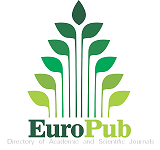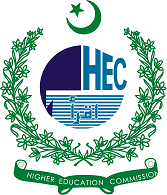Cross-Border Narratives: Construction of Pakistan’s Image on Facebook in Afghanistan
DOI:
https://doi.org/10.58932/MULA0051Keywords:
Pakistan, Afghanistan, Other, Enemy, FacebookAbstract
In Afghanistan, misconceptions about Pakistan are widespread. This study aims to understand those misconceptions by examining social media discourses. Facebook is a popular social network in Afghanistan; therefore, between October 2020 and February 2021, the researchers studied the discourses on selected Facebook pages, including those run by news organizations and individual users. Using Critical Discourse Analysis, 205 posts in toto and the comments made on them by users were analysed. The analysis found that Afghans have negative feelings toward Pakistan and Pakistanis, perceiving them as both "others" and "enemies." However, the perception of Pakistan as an enemy state dominated the discourses produced on individually run pages, as well as the comments made by users. The study concludes that all Afghans harbour prejudices against Pakistanis and that the majority regard Pakistan as an enemy state. The researchers recommend more studies on wider Afghan media discourses to validate these findings.
References
Ahmad, S. (2010). Pakistan and world affairs: the story of Pakistan is one of remorselss tug and pull. Jahangir Books.
Akbar, A., Ahmad, S., Nadim, M., Bhatti, M. A. A., & Khan, H. (2024). Affect of Hrm on Employee Motivation Towards Green Creativity and Initiatives. Center for Management Science Research, 2(3), 197-216.
Anjum, G., & Bhatti, M. A. A. Discover the Impact of Internet Usage on the Academic Performance of Library and Information Science Students. Indonesian Journal of Multidiciplinary Research, 4(2), 377-388.
Ahmad, S., Qamar, A. J., Bhatti, M. A. A., & Bashir, U. (2023). Integrating Islamic Ethics with Modern Governance: A Comprehensive Framework for Accountability Across Religious, Social, and Economic Dimensions. Al-Irfan, 8(15), 51-79.
Bloor, M., & Bloor, T. (2013). The practice of critical discourse analysis: an introduction. Routledge.
Boone, J. (2016). National Geographic ‘Afghan girl’ arrested in Pakistan living under false papers. The Guardian.
Bashir, U., Saeed, S., & Abbas, S. K. (2020). Strategies for New Product Development in an Emerging Market. Advances in Social Sciences Research Journal, 7(4), 393-397.
Bhatti, M. B. A., & Khan, M. K. (2024). Implications of Project Managers’ Competencies on Project Success Moderating effect of Project Risk Management: A case of IT Sector in Lahore. Pakistan Journal of Multidisciplinary Research, 5(1), 66-85.
Burke, S. M., & Ziring, L. (1973). Pakistan's foreign policy: an historical analysis. Oxford University Press.
Carvalho, A. (2008). Media (ted) discourse and society: rethinking the framework of critical discourse analysis. Journalism studies, 9(2), 161-177.
Chilton, P. (2004). Analysing political discourse. Routledge.
Chughtai, M. A., Bhatti, M. B. A., & Naqvi, I. H. Ethics before Trust in Organization Public Relationships (OPRs): A Review of Real Estate Organizations.
Durani, M. U., & Khan, A. J. T. D. (2002). Pakistan-Afghan relations: historic mirror. 4(1), 90-98.
Fairclough, N. (1989). Discourse and power. Language and power. London: Longman.
Fairclough, N. (2013). Critical discourse analysis: the critical study of language. Routledge.
Ghaffar, M. A., Shair, W., Afzal, H., ul Hassan, R., & Bashir, U. (2024). Income and Income Aspiration: Exploring the Impact on Life and Financial Satisfaction. Journal of Economic Impact, 6(3), 257-263.
Haider, I. (2015, August 10). Ashraf Ghani slams Pakistan over recent Kabul attacks. Dawn.
Hayat, A., Khan, I., Zahra, M., & Iqbal, Z. (2021). Persuasion and ideological representation in Facebook page Khabees Orat: a critical discourse analysis. Journal of Archaeology of Egypt/Egyptology, 18(08), 1809-1828.
Hussain, S., & Latif, D. M. I. (2012). Issues and challenges in Pakistan-Afghanistan relations after 9/11. Journal of South Asian Studies, 27(1).
Ibrahimi, N., Omer, M., & Irfani, M. (2015). Social media and articulation of radical narratives in Afghanistan.
Jawad, S., Naveed, H., & Akram, M. B. (2020). Academic Performance of Enrolled Students in the University of Lahore, Pakistan. Quest Journal of Management and Social Sciences, 2(2), 357-365.
KhosraviNik, M., Krzyżanowski, M., & Wodak, R. (2012). Dynamics of representation in discourse: immigrants in the British press. In Migrations: Interdisciplinary Perspectives (pp. 283-295). Springer.
Bhatti, M. B. A., & Durrani, M. K. (2024). The effect of project managers’ competencies on project success with mediating role of project stakeholders’ engagement: A case of IT sector. Journal of Management Info, 11(1), 51-73.
Khosravinik, M., & Sarkhoh, N. (2017). Arabism and Anti-Persian sentiments on participatory platforms: a social media critical discourse study. International Journal of Communication, 11(20), 3614-3633.
Mairaj-ul-Hamid. (2017). Pak-Afghan ties: evolution, challenges and the way forward. The Journal of the Institute of Policy Studies, 14(1), 59-82.
Mansouri, S., Biria, R., Mohammadi Najafabadi, M., & Sattar Boroujeni, S. (2017). Nomination and argumentation strategies in oratory discourse: the case of an English sermon. SAGE Open, 7(2). https://doi.org/10.1177/2158244017702425
McChesney, R. W. (2002). The US news media and World War III. Journalism, 3(1), 14-21.
Orfan, S. N. (2020). Political participation of Afghan youths on Facebook: a case study of Northeastern Afghanistan. Cogent Social Sciences, 7(1), 1857916.
Rafaqat, M. ., Azad, F. ., Ahmad, S. ., Aijaz, K. ., Ikram, S. H. ., Bashir, U. ., Bhatti, M. A. A. ., & Saeed, S. . (2024). Impact of Governance and Strategy Performance on Employer Branding. Research Journal for Societal Issues, 6(2), 852–867.
Safi, F., Özad, B. E., & Iqbal, L. (2020). Ideological representations in the Indian newspapers’ editorials: a case study of Pulwama incident in Kashmir. Revista Argentina de Clínica Psicológica, 29(3), 743.
Saleh, A. (2020, October 12). غلط خوانی طالب از تحولات : عمده ترین دلایل افزایش حملات پوچ و خونبار طالبان بر مردم افغانستان فهم نادرست این گروه جهل و وحشت از تحولات سیاسی و بیرونی است.Facebook. https://www.facebook.com/AmrullahSaleh.Afg
Saleh, A. (2021a, February 6). تصمیم نود و پنجم : جلسه شش و نیم صبح روز شنبه تاریخ ۱۸ دلو مطابق به ۶ فبروری سال ۲۰۲۱Facebook. https://www.facebook.com/AmrullahSaleh.Afg
Shair, W., Bano, S., Afzal, H., ul Hassan, R., & Bashir, U. (2024). Well-Being Dimensions and Environmental Protection: The Role of Health, Life Satisfaction, and Financial Satisfaction. Policy Journal of Social Science Review, 2(4), 783-802.
Saleh, A. (2021b, February 20). مکالمه تیلفونی رییس جمهور افغانستان با رییس کل ناتو فرصت مهمی بود تا بتوانیم دیدگاه و نظریات خویش را شریک سازیم. پاکستان به عنوان مهمترین حامی تسلیحاتی و استراتیژیک طالبان تلاش دارد دو کار را موازی انجام دهد. اول بخاطر تحریف اذهان سخن از صلح میگویند و روایت صلح را پر رنگ جلوه میدهند . اما در بعد دیگر هیچ قرینه ای از کم شدن حمایت تسلیحاتی - تدارکاتی - صحی - تعلیماتی و نظامی پاکستان از طالبان دیده نمیشود. به تکرار باید گفت که بدون حمایت های پاکستان طالب توان زنده بودن به عنوان جریان مسلح را برای شش ماه نخواهد داشت.Facebook. https://www.facebook.com/AmrullahSaleh.Afg
Shojaei, A., Youssefi, K., & Hosseini, H. S. (2013). A CDA approach to the biased interpretation and representation of ideologically conflicting ideas in western printed media. Journal of Language Teaching and Research, 4(4), 858. https://doi.org/https://doi.org/10.4304/jltr.4.4.858-868
Bhatti, M. A. A., & Nazir, M. U. (2024). The Impact of Project Process Management on Sustainable Project Success in the Construction Sector: The Moderating Role of Risk Management Practices. Bulletin of Business and Economics (BBE), 13(2), 1065-1072.
Tariq, M., & Iqbal, Z. (2023). Neo-Islamophobia: a new western social order. Journal of Islamic Thought and Civilization, 13(1), 134-156. https://doi.org/https://doi.org/10.32350/jitc.131.10
Tariq, M., Iqbal, Z., & Khan, F. R. (2021). Construction of Islam and the Muslims in the USA: evidence from print media. Journal of Islamic Thought and Civilization, 11(2). https://doi.org/https://doi.org/10.32350/jitc.112.08
van Dijk, T. A. (1991). Racism and the press. Routledge.
Van Dijk, T. A. (1993). Principles of critical discourse analysis. Discourse & Society, 4(2), 249-283.
Van Dijk, T. A. (2000). Ideology and discourse: a multidisciplinary introduction (Vol. 10251034). Pompeu Fabra University, Barcelona.
van Dijk, T. A. (2001). Critical discourse analysis. Deborah Tannen, Deborah Schiffrin ve Heidi Hamilton (Der.), The Handbook of Discourse Analysis içinde (s. 352-371). In: Oxford: Blackwell.
van Dijk, T. A. (2009a). Critical discourse studies: a sociocognitive approach. Methods of critical discourse analysis, 2(1), 62-86.
van Dijk, T. A. (2009b). News, discourse, and ideology. The handbook of journalism studies, 191-204.
van Dijk, T. A. (2011). Discourse studies: a multidisciplinary introduction. Discourse and Ideology, 2, 379-407.
Wodak, R., & Boukala, S. (2015). European identities and the revival of nationalism in the European Union: a discourse historical approach. Journal of language and Politics, 14(1), 87-109.
Wodak, R., & Krzyzanowski, M. (2008). Qualitative discourse analysis in the social sciences. Palgrave Macmillan.
Wodak, R., & Reisigl, M. (2001). Discourse and discrimination: rhetorics of racism and antisemitism. Routledge.
Youssef, S. A. M. (2014). Representation of the Muslim Brotherhood in contemporary Egyptian newspapers [Thesis, AUC Knowledge Fountain]. Cairo.




